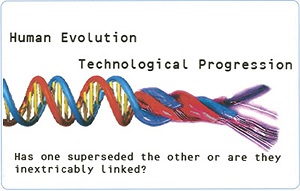 As the result of cyberculture's evolution we already see the development of a new young subculture — net culture and its representatives the successors of cyberpunks — netizens. As the result of cyberculture's evolution we already see the development of a new young subculture — net culture and its representatives the successors of cyberpunks — netizens.
Netizens are the cosmopolitans of the Net. They are modern cyberpunks, which don't stand any restrictions on the Net, don't avoid skirting their digital rights if it is required to access information they want. The citizens of the computer network usually have their own Net aliases, nicknames, or avatars (virtual fancy dress) — their Net person. It may be totally different from the real person behind the alias; it may even be different gender.
There are different types of netizens present nowadays, some of them we would like to introduce you to:
- Netrunners — inhabitants of the Internet. They live online, spending their time surfing the Web, searching info and files, downloading software, music, pictures, chatting, writing e-mails, posting to newsgroups — communicating at all.
Mostly, these are usual Internet-users for whom the Internet is a hobby, and where they try to follow the same rules and laws which are compelled to be observed in a daily life.
 Hackers — the «guru» of the computer world. They find rescue from laws and rules on the Net. They can help and they can damage. The subculture of hackers is the first example of influence of computer and network technologies, being hacker's style of life, on formation of specific cultural trends. On the one hand, they are highly-skilled programmers, on the other — the crackers. Hackers — the «guru» of the computer world. They find rescue from laws and rules on the Net. They can help and they can damage. The subculture of hackers is the first example of influence of computer and network technologies, being hacker's style of life, on formation of specific cultural trends. On the one hand, they are highly-skilled programmers, on the other — the crackers.
- Crackers — Gibsonian «console cowboys», «dark-side hackers». It regular exercising bringing pleasure for them either to hack into private computer systems damaging it, or to crack, i.e. to bypass the security, of trial software in order to gain an access to its full features without paying a cent.
- Otakus — Japanese anime fans, geeks who are keen on surfing the Net for cartoons, art, music and PC-games somehow connected with anime and manga. In Japan the attitude to otakus, also known as Japanophiles, became quite negative after the rise of acts of serial murders and pedophilia by otaku.
Of course, all the cultures want to be free and independent. Network liberalism is some kind of social, political, economic and ethical implication of those basic, ontological principles of the system of the global network which have been characterized in the previous section as rhizomorphic, i.e. anti-hierarchical.
Generally, anyone tightened in the Internet has equal opportunities with others for self-expression. As a result, each person — irrespective of the status, health, a race, sex and so on — begins the game with the same zero level on identical game field to all.
|
 |
|
|
 |
 |
|
Internet-experiment on survival.
Quite an interesting experiment was carried out once by British scientists. A man was kept in an empty flat for a year and was not allowed to exit the premises except for receiving goods from delivery services he ordered. The only «window» to an outside world for him was a computer connected to the Internet.
Interestingly, by the end of a year, the man had a well-paid job, running his own e-business, fully furnished accommodation and didn't suffer from hunger. This is a really striking illustration of opportunities the Net can give us, opportunities for the real existence of net culture.
The aim of such research was to find out how useful Internet-technologies can be to make one's living. As a result, it was proven that the development of e-business and Internet-banking has reached unprecedented heights and has given a chance to our «convict» not to perish. |
|
|
 |
|
|
 |
|
| |
|
« internet | netizens | virtuality »
|
| |
|

 As the result of cyberculture's evolution we already see the development of a new young subculture — net culture and its representatives the successors of cyberpunks — netizens.
As the result of cyberculture's evolution we already see the development of a new young subculture — net culture and its representatives the successors of cyberpunks — netizens. Hackers — the «guru» of the computer world. They find rescue from laws and rules on the Net. They can help and they can damage. The subculture of hackers is the first example of influence of computer and network technologies, being hacker's style of life, on formation of specific cultural trends. On the one hand, they are highly-skilled programmers, on the other — the crackers.
Hackers — the «guru» of the computer world. They find rescue from laws and rules on the Net. They can help and they can damage. The subculture of hackers is the first example of influence of computer and network technologies, being hacker's style of life, on formation of specific cultural trends. On the one hand, they are highly-skilled programmers, on the other — the crackers.